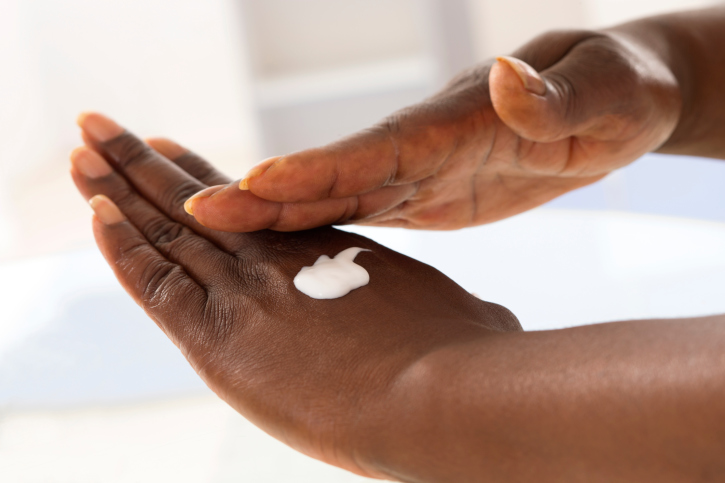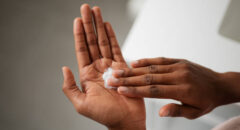 While on the surface, eczema and psoriasis may seem very similar, there are a few slight differences between the two that are worth knowing about.
While on the surface, eczema and psoriasis may seem very similar, there are a few slight differences between the two that are worth knowing about.
What is eczema?
Mayo Clinic defines eczema as a condition that makes your skin red and itchy.
Psoriasis, on the other hand, is defined as an overproduction of skin cells and is characterized by thick, silvery scales and itchy dry, red patches that are sometimes painful. Both are autoimmune diseases.
Eczema may occur as a result of coming in contact with certain dyes, fabrics, soaps, laundry detergents, animals, and other triggers, including stress, fragrance, and over-washing of hands.
In addition to being red and itchy, the affected areas may have blisters or be filled with pus. In most cases, you can clear eczema with over-the-counter topical or antibiotic creams. Eczema is very common among infants.
What is Psoriasis?
Like eczema, psoriasis can occur anywhere on the body, but it tends to be most common on the elbows, knees, and legs. According to the American Academy of Dermatitis, 50 percent of psoriasis patients will eventually experience patches on their scalp.
Psoriasis can also be treated with over-the-counter topical and antibiotic creams. In more severe cases, the doctor may prescribe an oral medication or recommend a light therapy treatment.
Although it often goes undiscussed, psoriasis can also develop on the genitals, which can be uncomfortable and embarrassing if you’re in an intimate relationship.
The patches that develop on or around the genitals tend to be softer than the patches on your arms and legs due to the increased amount of moisture in those areas.
How are they different?
Eczema can also occur in uncomfortable places, especially for infants as diapers and creams can be irritating to a baby’s extra-sensitive skin.
Many parents find that switching to cotton diapers helps to prevent diaper rashes.
In severe cases, psoriasis can end up covering a person’s entire body and can even become life-threatening in some cases.
If you experience extreme pain and/or a burning sensation, see your doctor immediately. The same goes for eczema. Severe cracking, oozing, and bleeding are strong indicators that you should seek professional care right away.
While eczema vs psoriasis are both known to cause social anxiety, a 2010 study discovered that people with psoriasis have a greater risk of depression, anxiety, and suicidal thoughts. Although living with eczema vs psoriasis can be difficult, you can still have a happy, normal, and productive life.
When coming in contact with others, don’t be ashamed. Instead, use that opportunity as a way to educate them and debunk any common myths. If you find yourself at a loss for words, a good ice breaker might be, “Don’t worry; it’s not contagious.”
Try saying it with a smile and maybe even a laugh! And if you feel so inclined to explain your condition, do so briefly and move on quickly. If you treat your eczema or psoriasis as if it’s no big deal, others will take notice and learn to do so as well.
Visit the BlackDoctor.org Skin Problems center for more articles.








